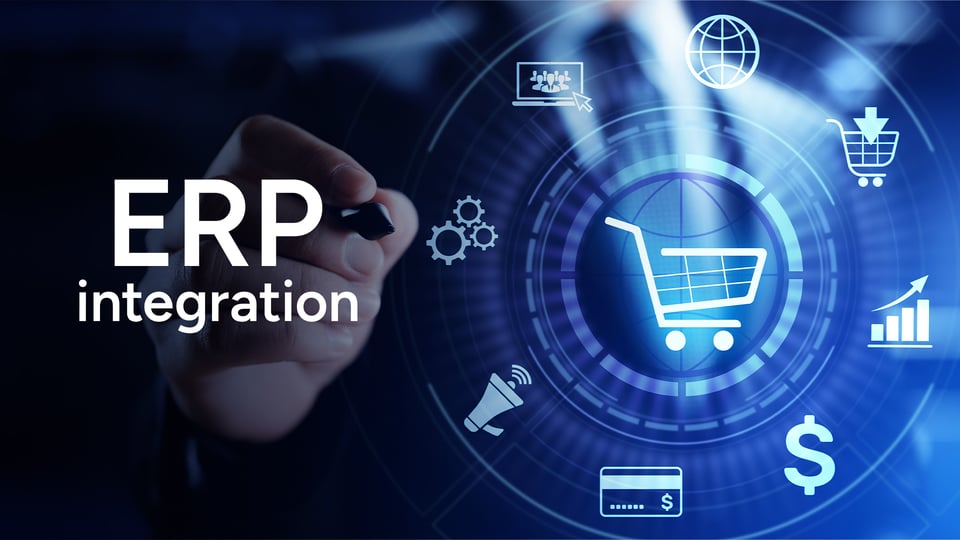Ecommerce ERP integration: Why it's important and how to achieve it

Integrating ERP with ecommerce boosts efficiency, accuracy, and competitiveness. Choose dedicated software like ChannelEngine for seamless integration and scalability.
A dependable Enterprise Resource Planning (ERP) system is critical for ecommerce brands as they grow.
It boosts your productivity by providing a centralized, secure location for your internal data.
But it's not enough to simply start using an ERP. It has to integrate seamlessly with your ecommerce platform and systems, in order to maximize your operational efficiency.
Why you should integrate your ERP
An ERP system is critical for consolidating and streamlining essential business functions. For ecommerce brands, integration with your PIM and WMS is required to maximize its influence fully.
Connecting your ERP and PIM systems helps to provide accurate product information in your listings, improving performance on marketplaces and leading to a better customer experience. Integrating with WMS improves inventory management by enabling accurate stock visibility and enabling efficient order fulfilment.
This trinity of integrations provides ecommerce firms with a holistic solution that maximizes operational efficiency, data accuracy, and a competitive advantage in the market.
Accurate Data
An ecommerce ERP integration creates a unified platform where data from all of these areas is consistent, accurate, and accessible across the business.
By removing data silos and establishing seamless connections, this integration guarantees that critical information, ranging from product specifications to inventory levels, flows smoothly throughout your organization.
This not only enhances decision-making processes but also contributes significantly to increased customer satisfaction by minimizing disparities in product availability and pricing.
Streamlined inventory management
An ecommerce ERP integration enables effective fulfillment planning and, subsequently, an improved inventory management process. It enables this by providing a single, accurate view of inventory data across many business operations, reducing stockouts and improving warehouse efficiency.
The benefits of an integrated ecommerce setup spread throughout the supply chain, helping your brand to keep overheads under control.
More efficient ecommerce operations
A well-integrated ERP boosts productivity by enabling streamlined workflows that replace manual operations, decreasing human effort and lowering the chance of error.
Workflows are expedited because product data is centralized and standardized, allowing for consistent and error-free modifications across several channels. This is especially useful when selling on multiple marketplaces.
How to achieve ecommerce ERP integration
The journey of ecommerce ERP integration necessitates a systematic approach to smoothly connecting and synchronizing all aspects of your business operations.
Ecommerce integration software
Dedicated ecommerce integration software helps to provide an out of the box solution for connecting your ERP to your other essential ecommerce software, like PIM, WMS, and front end sales channels.
With software like ChannelEngine, you can create a seamless connection with your ERP solution in a short space of time, helping you to get to market quickly and operate in a streamlined manner.
Rob Folkers, marketplace integration specialist, Kave Home (after switching integration software to ChannelEngine).
Direct connection between your ERP and their platform
A custom built, direct connection between your ERP and ecommerce platforms may appear to be a simple option, but it has considerable limitations and is costly and time consuming to execute.
Compared to using ecommerce integration software, this option provides less flexibility and room for growth. Adding new channels and marketplaces, or integrating more solutions also becomes difficult as you scale.
Final words
An Ecommerce ERP integration is more than a technological improvement; it is a strategic decision to remain competitive and agile in the market. The advantages range from reliable data for educated decision-making to improved inventory management and operational efficiency.


